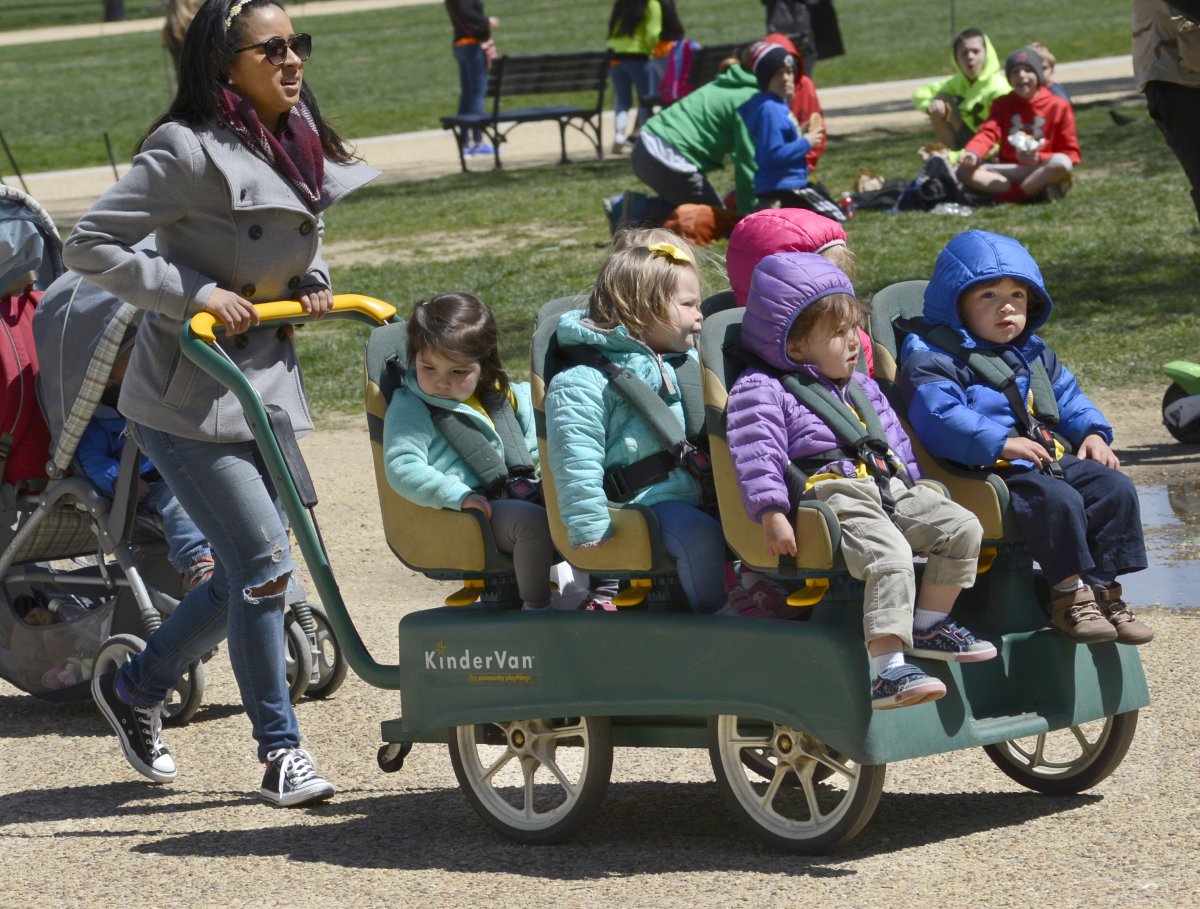Sitting to my left on an airplane between Seattle and Charlotte, a woman I'd just met leaned toward me and said (in that way naked confessions are sometimes shared between strangers), "I hope my children never have children."
I blinked. She'd just shared—with deep love in her eyes—that she had three children, all in their late teens or early 20s.
"Why?" I whispered back.
"Because raising children is impossible."
I looked at her again. A mom with deep circles under her eyes, in a mismatched sweatshirt and shorts, and running shoes—a hard working person in the process of quite literally running between caring for her children in one state and her parents in another. A mom sandwiched between caring for two generations, squeezed by our lack of a care infrastructure, exhausted.
Impossible.

We have made raising kids and caring for parents something that simply can't be done in the United States of America. This has been a choice of inaction. A choice of missed opportunities to catch up with the rest of the world when it comes to building a care infrastructure. A choice to ignore the deep circles of exhaustion under the eyes of the moms, the caregivers, and the care workers around us. A choice to limit our economy and businesses as talented moms get pushed out of the labor force.
My new confidant was not wrong. It is impossible.
Childcare still costs more than college in most states—and most childcare programs don't take infants under 6 weeks old. That means that even if you can afford childcare, you're still out of luck if you're one of the 1 in 4 moms who have to go back to work within two weeks of a new baby arriving. Despite the fact that virtually every other nation has some form of paid family/medical leave after a new baby arrives, we don't.
Impossible because care workers (most of whom are moms) are some of the lowest paid workers in our nation. Impossible because moms, who are 6 out of 10 of the people who need and have abortions, are facing dangerous and drastic restrictions on their ability to decide if and when their family grows.
Impossible because becoming a mom is increasingly dangerous as shown by the CDC reporting a 40 percent spike in moms dying before their first Mother's Day, and that Black women are three times as likely to die in childbirth. Impossible because being a mom is now a greater predictor of wage and hiring discrimination than gender—and due to structural racism, moms of color experience increased wage hits to the extent that Latina moms earn just 46 cents to a white dad's dollar.
And when our children come into this impossible situation, we are all forced to sit with deep fear for them when they go to school, to the movies, to the park, or out in the world because guns are now the leading cause of childhood death in America where the right to bear arms overrides the right to raise our children in safety.
It doesn't have to be this way.
We know the solutions: Pass a universal paid family/medical leave program like most other nations on the planet have already done; make childcare affordable and provide universal pre-kindergarten; make eldercare and home- and community-based services accessible; welcome immigrants, who are nearly 40 percent of homecare workers; pay care workers fairly; make health care, including mental health care, available to all; and pay for it with a fair tax structure in which corporations and the very wealthy finally pay their fair share.
Studies show that taking these steps lifts our economy, helps our businesses, opens the door for families to thrive, and helps close the wage gap between moms and non-moms.
So why haven't we, as a nation, taken these steps yet?
Poll after poll, including a recent poll by Lake Research Partners, commissioned by MomsRising, shows people know exactly what's going on and strongly support taking steps toward national solutions. But, so far, it's only Democratic leadership in Congress who have advanced care infrastructure policies. On the other side of the aisle, the self-proclaimed party of "family values," has blocked our nation from taking these critical steps, despite what their own constituents want and need.
This political blockade by Republican leadership is happening even as Federal Reserve Chairman Jerome Powell has raised the importance of building a care infrastructure to maintain international competitiveness and boost our economy; and even as whispered confessions between moms are building into a movement for change.
Impossible shouldn't be the norm. And the weight of impossibility shouldn't have to be carried across generations. We can—we must—do better.
Kristin Rowe-Finkbeiner is executive director and co-founder of MomsRising.org, a nonprofit national organization that supports policies to improve family economic security. She is the author of "Keep Marching: How Every Woman Can Take Action and Change Our World."
The views expressed in this article are the writer's own.
Uncommon Knowledge
Newsweek is committed to challenging conventional wisdom and finding connections in the search for common ground.
Newsweek is committed to challenging conventional wisdom and finding connections in the search for common ground.
About the writer
To read how Newsweek uses AI as a newsroom tool, Click here.








